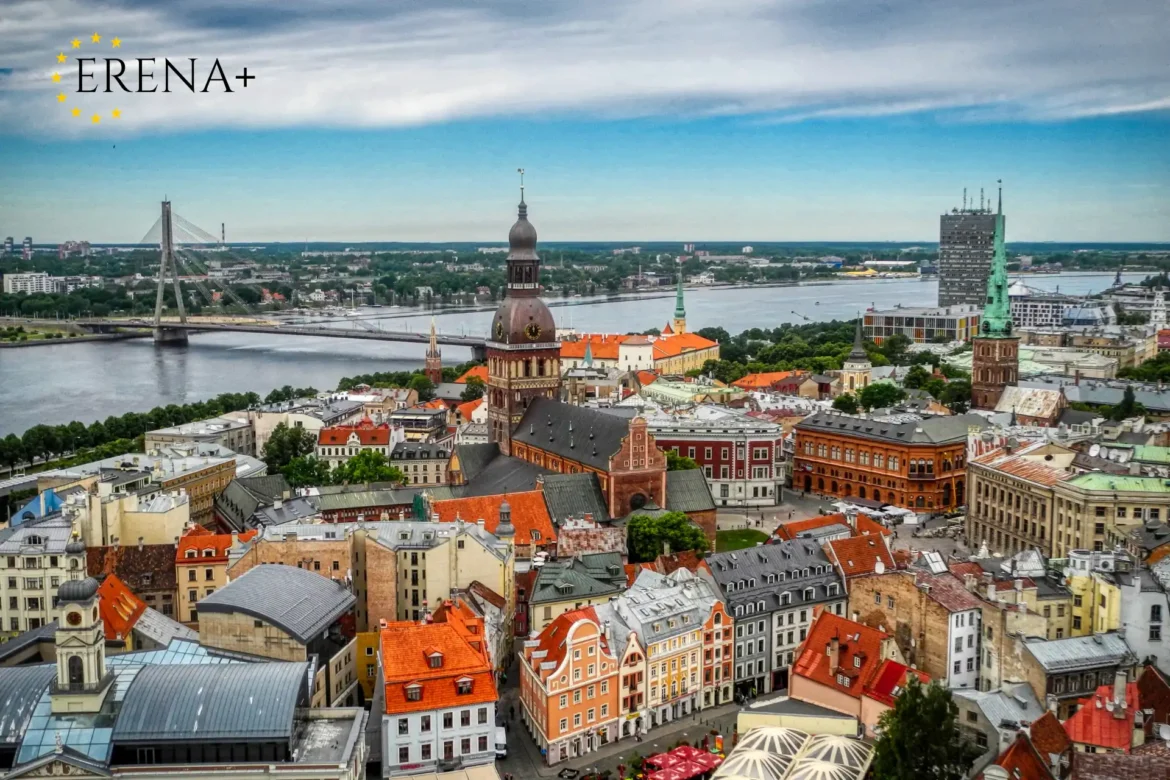The Latvian real estate market has shown signs of revival in recent months. Experts attribute this to improving macroeconomic conditions and the anticipated reduction in interest rates, creating more attractive opportunities for buyers.
Interest Rates and Buyer Activity
Specialists highlight that lowering interest rates will be a key driver in increasing the number of transactions in the real estate market. Representatives of the banking sector, particularly Citadele Bank, predict heightened market activity next year. Janis Murnieks, Head of Personal Banking at Citadele, believes that lower rates will enhance housing affordability, attracting new buyers, especially those who postponed purchases due to high credit costs.
Primary Market: Available Projects and Changing Preferences
The primary real estate market continues to offer a significant supply of new projects. While 70–80% of transactions previously occurred through pre-booking during construction, buyers now prefer to inspect completed apartments before signing deals. This shift stems from the economic uncertainty of recent years and a consumer desire to evaluate the finished product.
An emerging trend is the growing popularity of apartments in restored pre-war buildings, which now compete favorably with new developments, particularly when they boast good locations and appealing designs.
Pricing in New Developments
Average housing prices in new developments vary by class:
• Economy Class: Starting at €2,200 per square meter.
• Mid-range Class: Ranging from €3,000 per square meter.
• Premium Class: From €4,000 per square meter.
Given the rising costs of construction materials, price reductions in new developments are unlikely. Developers note that modern projects involve higher expenses, making current price levels stable or even increasing.
Interest in Private Houses
The private housing market has also seen noteworthy changes. The average size of preferred homes has become more compact. Houses with an area of 100–120 square meters and four rooms are currently the most sought after. Buyers are willing to spend between €220,000 and €250,000 for such properties.
Demand for smaller homes is tied to economic efficiency: lower construction, maintenance, and heating costs make these properties more appealing to middle-class families.
Growth in Mortgage Transactions
Latvian banks have reported a rise in the number of mortgage agreements. At Citadele, the volume of such deals increased by 56% over the first nine months of this year compared to the same period last year. The average purchase price of housing through a mortgage is approximately €93,500.
This growth demonstrates that even in economic uncertainty, Latvians remain active in investing in real estate. However, many transactions occur in the secondary market, where prices are more affordable.
Cases of Low Housing Prices
Occasionally, properties in Latvia are sold at exceptionally low prices, such as €1. The reasons for this phenomenon include:
1. Family Deals: Property transfers between relatives at symbolic prices.
2. Tax Avoidance: Sellers understate transaction values to reduce tax liabilities.
3. Limited Regional Credit Access: In rural areas, limited mortgage lending by banks suppresses property values.
Such practices can create legal complications for future owners, especially if the declared price does not match the property’s actual market value.
Legislative Changes: Debt Follows the Property
Recent amendments to the “Apartment Property” and “Residential Building Management” laws introduced a principle where property debts are transferred to new owners. These rules apply only to debts incurred no more than a year before the property’s purchase.
This change aims to protect the interests of residents and management companies. However, it requires buyers to be more diligent when finalizing deals, as existing debts from previous owners could become unexpected financial burdens.
Economic Stagnation and Its Impact on Real Estate
High interest rates and economic stagnation are curbing activity in the real estate market. Many potential buyers are delaying purchases or opting for secondary market properties. Some families are choosing to build homes in rural areas or suburbs, where land costs are lower, and construction is more affordable.
Experts believe the real estate market could remain stagnant for at least two more years. Key factors include high credit costs and the slow growth of household incomes.
Forecasts and Market Prospects
Amid the anticipated decline in interest rates, experts predict increased activity in the real estate market. Lower rates are expected to make mortgages more accessible, attracting new buyers, particularly young families.
However, economic conditions and legislative changes will remain pivotal in shaping market trends in the coming years. Potential buyers are advised to monitor developments closely and seek professional advice to minimize risks when making purchase decisions.
Conclusion
The Latvian real estate market is gradually recovering from a challenging period of economic uncertainty. While many aspects remain unstable, the expected reduction in interest rates, an increase in mortgage transactions, and stable primary market prices offer reasons for optimism.
Latvian real estate market news
814
previous post

